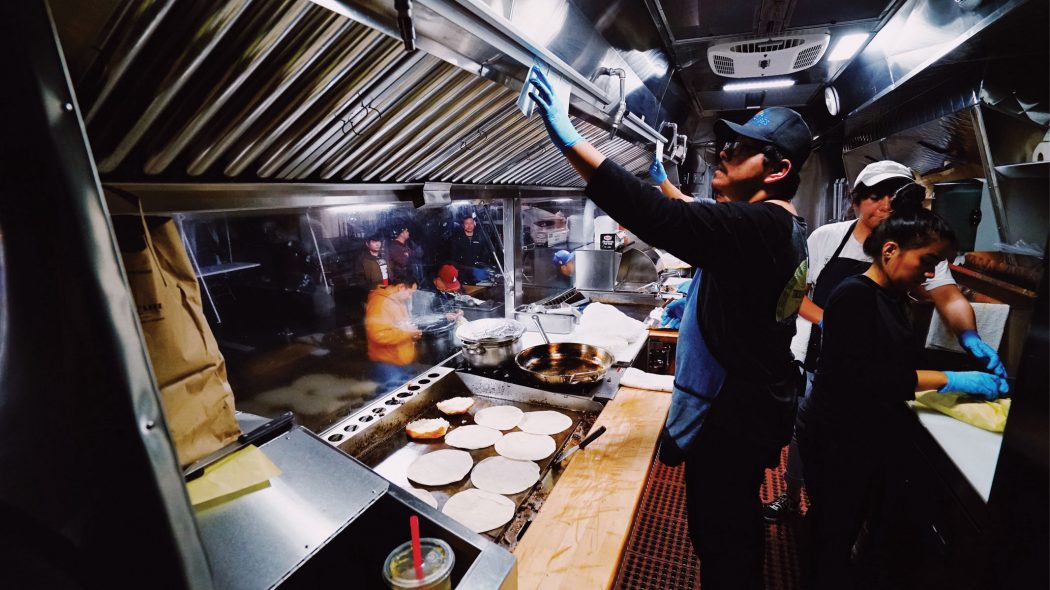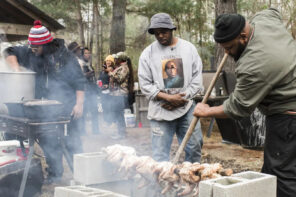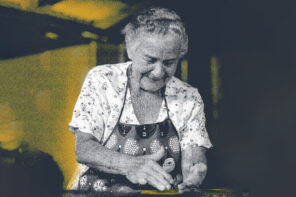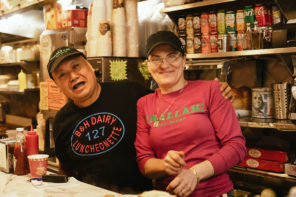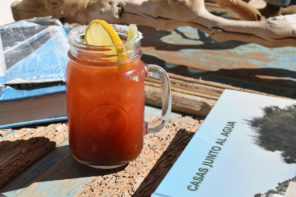![]()
The Road from Puebla to Los Angeles
By Cesar Hernandez
Photos by Adam Podolski
On a chilly February evening, the sound of mariachi reverberates through East Los Angeles to mark a celebration.
People line up for a half block around the Los Originales Tacos Árabes de Puebla. The celebration is, after 7 years of serving tacos árabes from a trailer hitch, the Villegas family has a truck. The front of the truck is adorned with bouquets of flowers. On the side of the truck is a small table with several cakes and multicolored gelatin. The truck is big. Larger than your average lonchera and tricked out with art by Ernesto Yerena. But it’s big in other ways for the Villegas family, who own and operate Tacos Árabes. It’s been a long road to this Boyle Heights street.
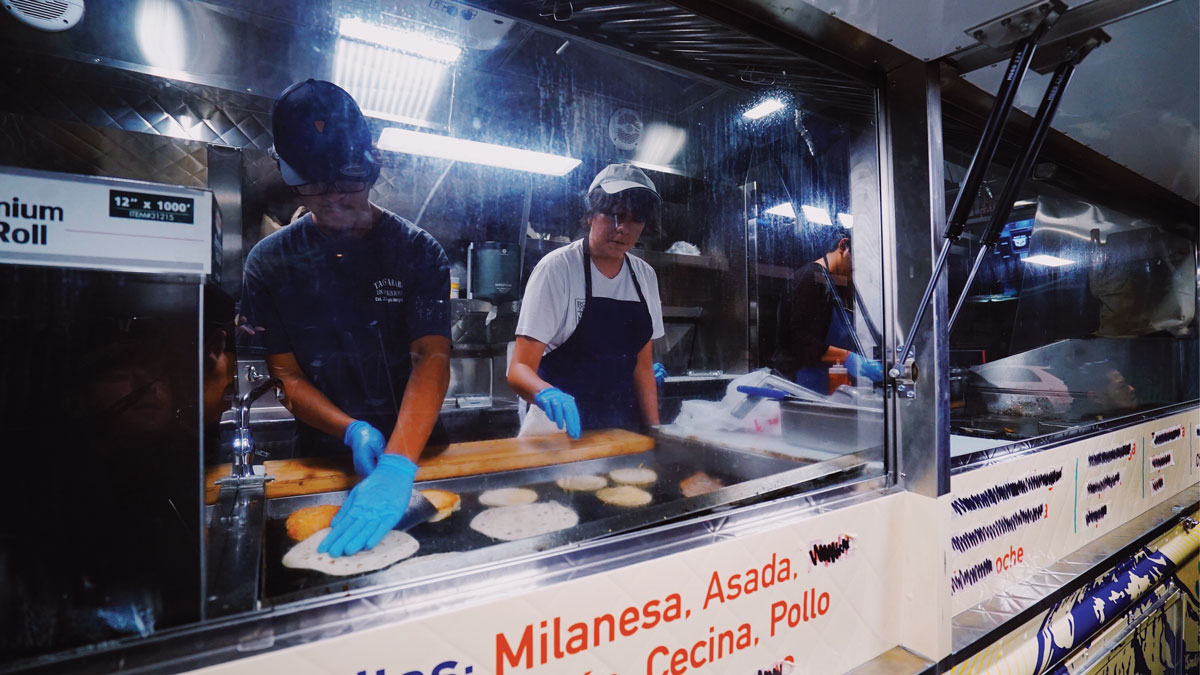
Alfredo and Merced Villegas were both born in Puebla, Mexico, they’re from the small pueblo of San Pedro Zacachimalpa.
“I’ve been working since I was 10 years old,” says Alfredo, in “mostly construction.” Since he had to work at such a young age he was not able to finish middle school. Eventually, he finished his schooling and had ambitions to work in civil engineering but left his program to come to the United States. He came to Los Angeles in his early 20s, “I saw it as an adventure honestly.” He was a young bachelor who only had to worry about himself in this new country, that is until he met Merced.
“I saw it as an adventure honestly.”
The culinary sensibilities of Tacos Árabes come from Merced, who has been selling food since she was a young girl. During the week Merced went to school, and on the weekends she would help her family sell carnitas and cemitas. In her mid-20s she came to LA on a whim with her cousin.
Merced and Alfredo met as teenagers in Puebla, but it wasn’t until they came to Los Angeles that they were reconnected through a cousin. “He would pass by my house,” Merced says. “But I was working so much I didn’t really have time for romance,” says Alfredo, finishing the thought. They were married in 1988 and had their first child, Arely, the following year. Today they have five children, Yessica, Jonathan, Alfredo, and Christian. Tacos Árabes is now a family effort. But getting there wasn’t easy—nor was it a straight path.
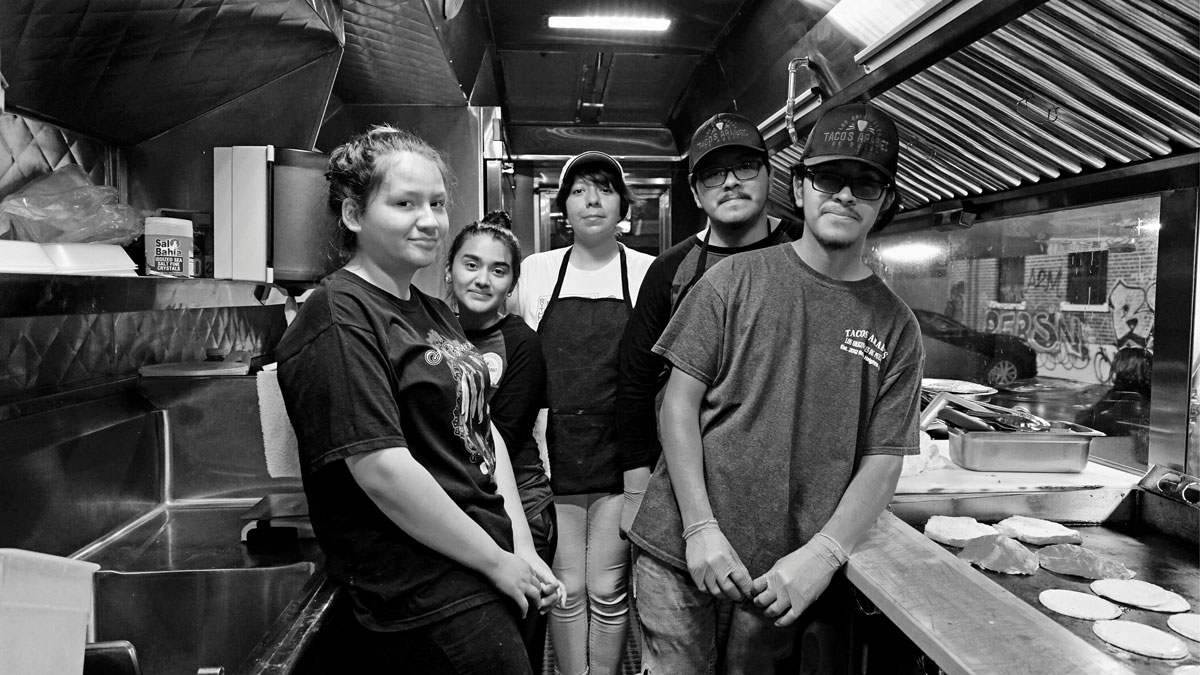
At first, Merced worked in the garment industry and Alfredo worked, well, where he could find it.
In 2007 Merced began selling Pueblan confectionaries imported from Puebla in the “piñata district” of Downtown LA. One of her friends suggested that Merced could make a bigger profit if she sold food. You know… real food. The stuff they grew up on. So she started selling quesadillas and cemitas. She did this for 5 years until they could afford a small remolque (trailer) in 2012. Eventually, the fledgling business moved 3 miles down to Olympic Boulevard and Esperanza in East LA, which is its home still.
But before the truck was parked here, when the trailer itself was new, the family committed to focus on food from Puebla. One of the biggest hurdles was finding an original taco árabe recipe. The price that they surveyed for the lauded recipe ranged from $10,000–$15,000, which was not really viable for a trailer hitch business. So Merced went to her brother, who had made the tacos in Puebla, and got his recipe. Merced says that she is the only one that knows the recipe. When pressed she wouldn’t release even one ingredient of their fantastic marinade.
One of the biggest hurdles was finding an original taco árabe recipe.
There is one compromise that Tacos Árabes had to make, and that’s on the tortillas. Traditionally a taco árabe is made with a pan árabe, which is thicker than a tortilla but not as thick as a pita. Merced explains that it is virtually impossible to get in Los Angeles. So the compromise they have made is a specially ordered flour tortilla to simulate the pan árabe. It’s the closest thing to a pan árabe in LA and the difference is hardly noticeable.
The taco árabe comes from the wave of migration of Lebanese immigrants to Puebla. The spit-roast technique of the taco árabe comes directly from those immigrants.
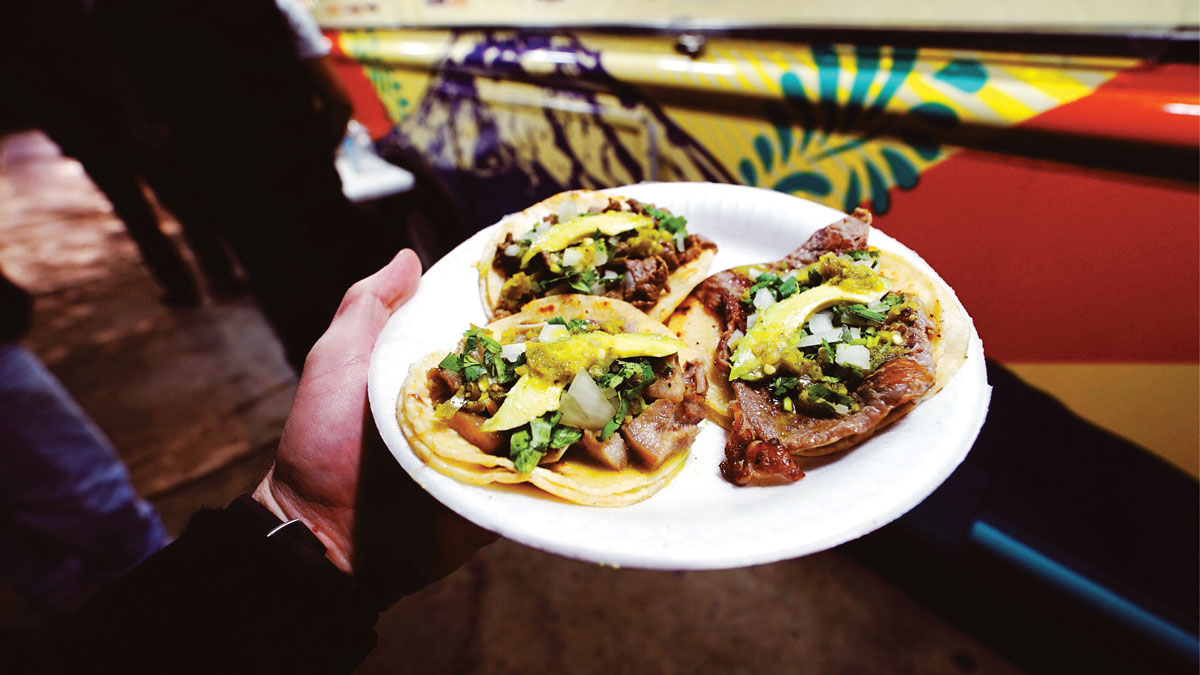
When pressed she wouldn’t release even one ingredient of their fantastic marinade.
The taco árabe is simple in construction, usually a pan árabe, marinated pork cut from a spit, quesillo (queso Oaxaca), and avocado—accompanied by a deep red salsa made of chipotles. On paper it is simple but the marinade of the trompo is what makes all the difference. That’s what makes this taco stand out from every other taquero in Los Angeles.
That secrecy is part of the mystique of the food.
The convergence of all the flavors and textures of the taco árabe is spellbinding. The taco has a distinct identity that is immensely difficult to replicate. It is a product of guarded family secrets, migration, and food engineering.
The Villegas family say that several Pueblan restaurants in LA have tried to buy the recipe to their marinade. “They offered us $15,000,” says Merced. Alfredo considered selling the recipe, but his children convinced him otherwise. The recipe has sustained their business for 7 years, so it seems the kids were on the money.
Perhaps most important, other Pueblans come to Tacos Árabes for a piece of home. “All the people from the Pueblan restaurants in East LA eat here,” Merced says.
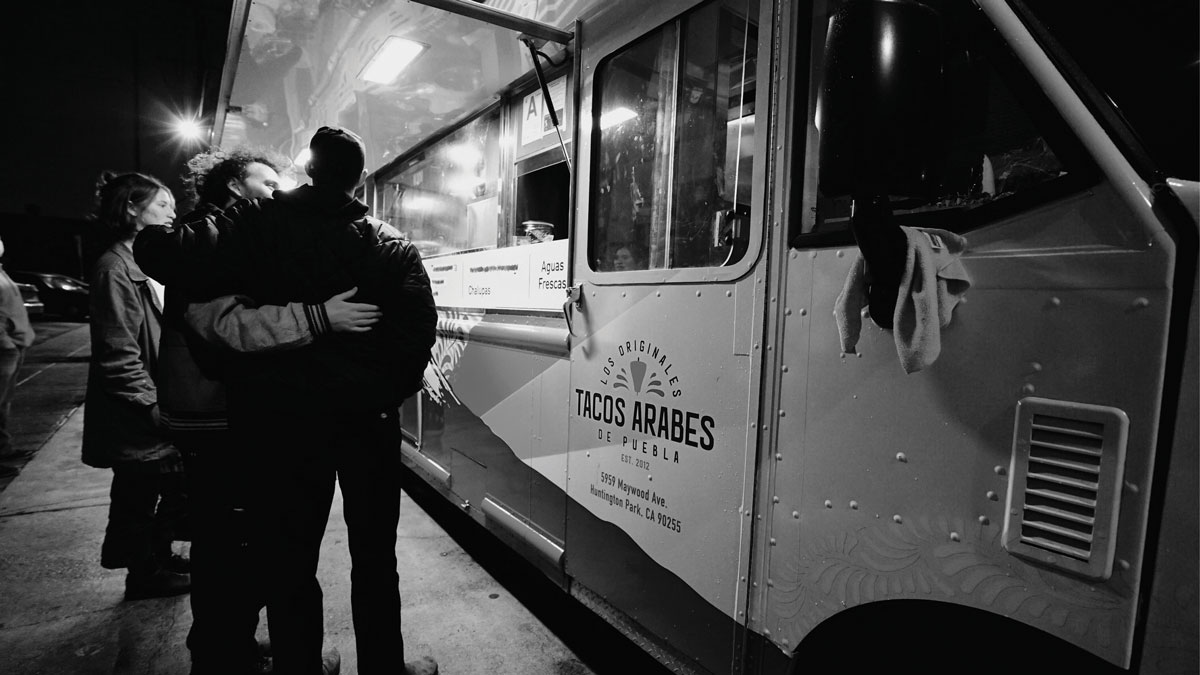
In addition to tacos árabes, they also sell cemitas, tacos de cecina (soft-dried meat), chalupas, and quesadillas. Each one is treated with the same dedication to Pueblan cuisine.
Merced has an unbridled commitment and allegiance to Pueblan cuisine.
“If you ask anyone who has the best food in La Republica (Mexico), they’ll say Puebla. We have chile en nogada, mole poblano, tacos árabes, molotes, and cemitas.”
The day of the truck launch, the entire Villegas family worked to serve the long line of people who came out for the celebration. The support was so overwhelming their celebratory mole was served with beans after they ran out of rice. When that too ran out, they served a bare-bones version of the taco árabes, tortilla and their famous marinated pork.
The truck came as a result of the Villegas family working with the nonprofit Leadership for Urban Renewal Network (LURN). LURN has an initiative called The Semi’a Fund, which helps entrepreneurs like the Villegas family acquire low-interest loans.
Rudy Espinoza, executive director at LURN, explains that many of these street vendors are preyed on by banks who try to give them high-interest loans. “They wanted to grow their business but couldn’t get capital from other places and so we offered to help.”
“This is a vehicle that they own themselves, their hope is that they can build a business and keep the resources for themselves and their family,” says Espinoza.
“They made our dreams come true,” Merced says. “I feel more comfortable, it has more room. But not too comfortable—we still want a restaurant.” She says ambitiously, always looking down the road.

